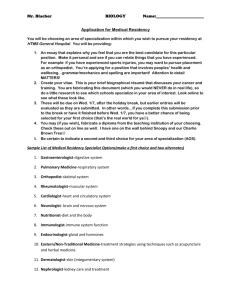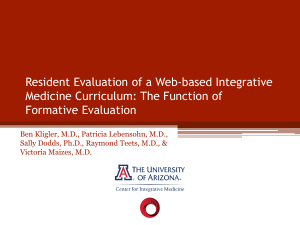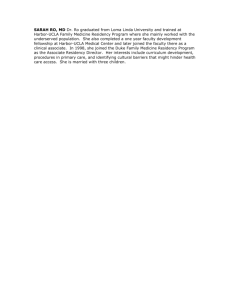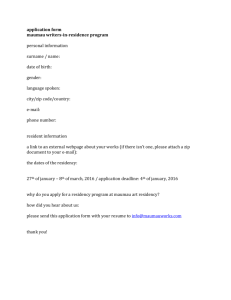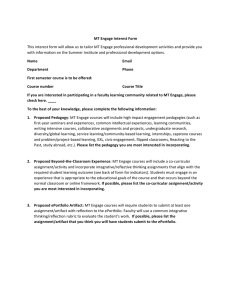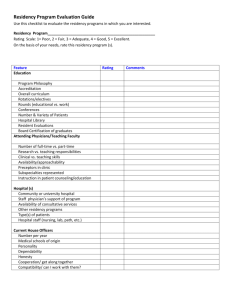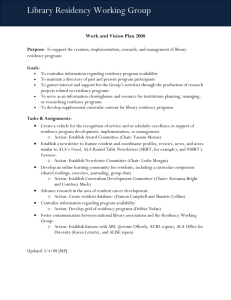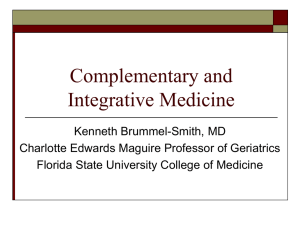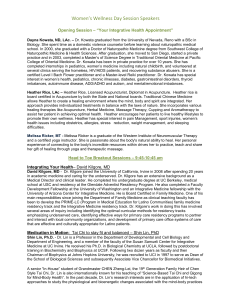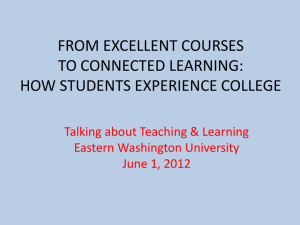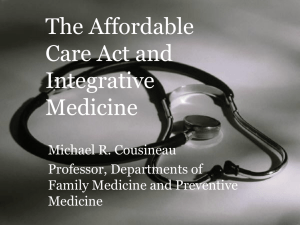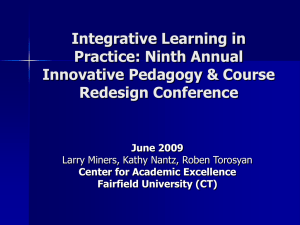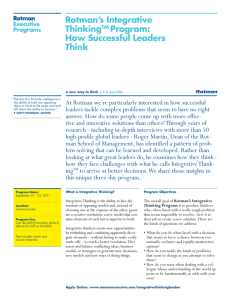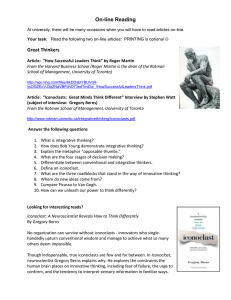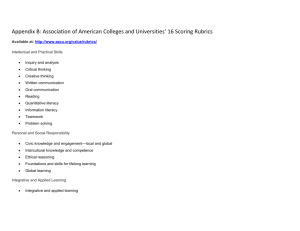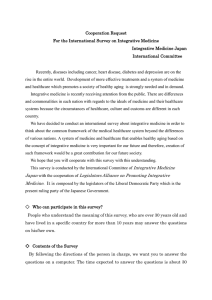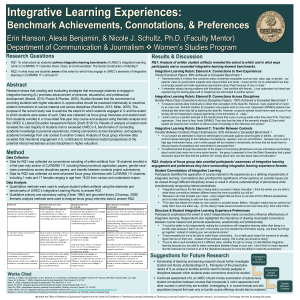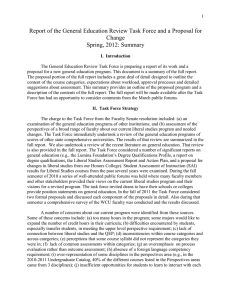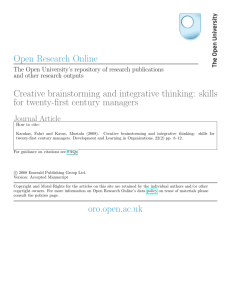IMR Curriculum - Maine Dartmouth Family Medicine Residency
advertisement
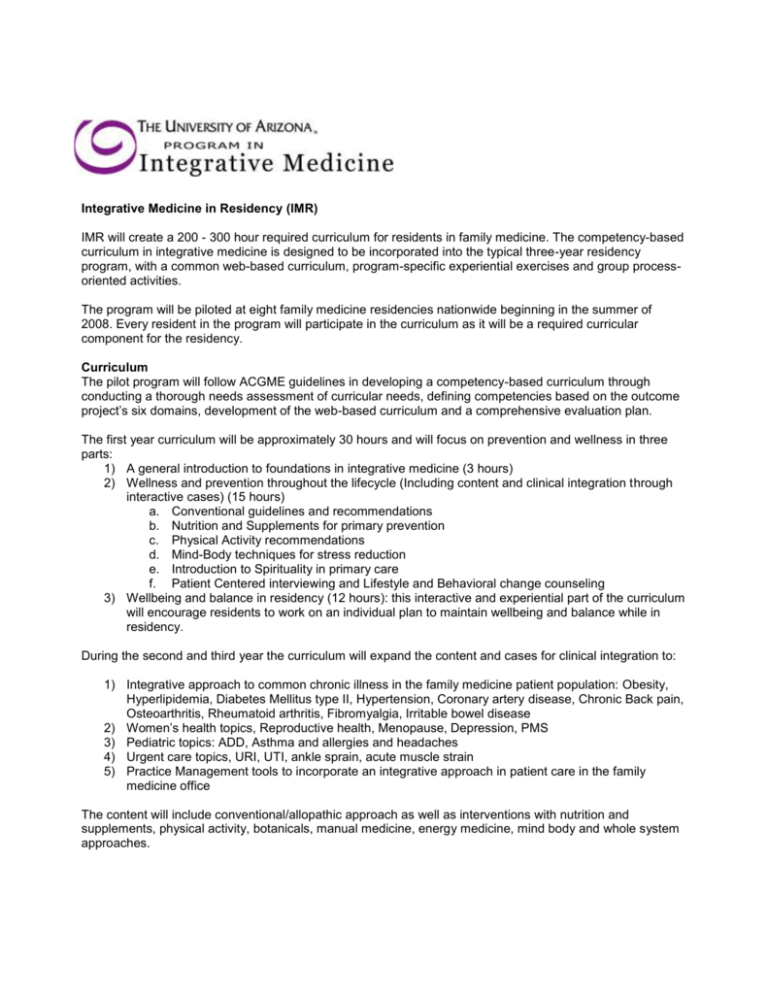
Integrative Medicine in Residency (IMR) IMR will create a 200 - 300 hour required curriculum for residents in family medicine. The competency-based curriculum in integrative medicine is designed to be incorporated into the typical three-year residency program, with a common web-based curriculum, program-specific experiential exercises and group processoriented activities. The program will be piloted at eight family medicine residencies nationwide beginning in the summer of 2008. Every resident in the program will participate in the curriculum as it will be a required curricular component for the residency. Curriculum The pilot program will follow ACGME guidelines in developing a competency-based curriculum through conducting a thorough needs assessment of curricular needs, defining competencies based on the outcome project’s six domains, development of the web-based curriculum and a comprehensive evaluation plan. The first year curriculum will be approximately 30 hours and will focus on prevention and wellness in three parts: 1) A general introduction to foundations in integrative medicine (3 hours) 2) Wellness and prevention throughout the lifecycle (Including content and clinical integration through interactive cases) (15 hours) a. Conventional guidelines and recommendations b. Nutrition and Supplements for primary prevention c. Physical Activity recommendations d. Mind-Body techniques for stress reduction e. Introduction to Spirituality in primary care f. Patient Centered interviewing and Lifestyle and Behavioral change counseling 3) Wellbeing and balance in residency (12 hours): this interactive and experiential part of the curriculum will encourage residents to work on an individual plan to maintain wellbeing and balance while in residency. During the second and third year the curriculum will expand the content and cases for clinical integration to: 1) Integrative approach to common chronic illness in the family medicine patient population: Obesity, Hyperlipidemia, Diabetes Mellitus type II, Hypertension, Coronary artery disease, Chronic Back pain, Osteoarthritis, Rheumatoid arthritis, Fibromyalgia, Irritable bowel disease 2) Women’s health topics, Reproductive health, Menopause, Depression, PMS 3) Pediatric topics: ADD, Asthma and allergies and headaches 4) Urgent care topics, URI, UTI, ankle sprain, acute muscle strain 5) Practice Management tools to incorporate an integrative approach in patient care in the family medicine office The content will include conventional/allopathic approach as well as interventions with nutrition and supplements, physical activity, botanicals, manual medicine, energy medicine, mind body and whole system approaches.

